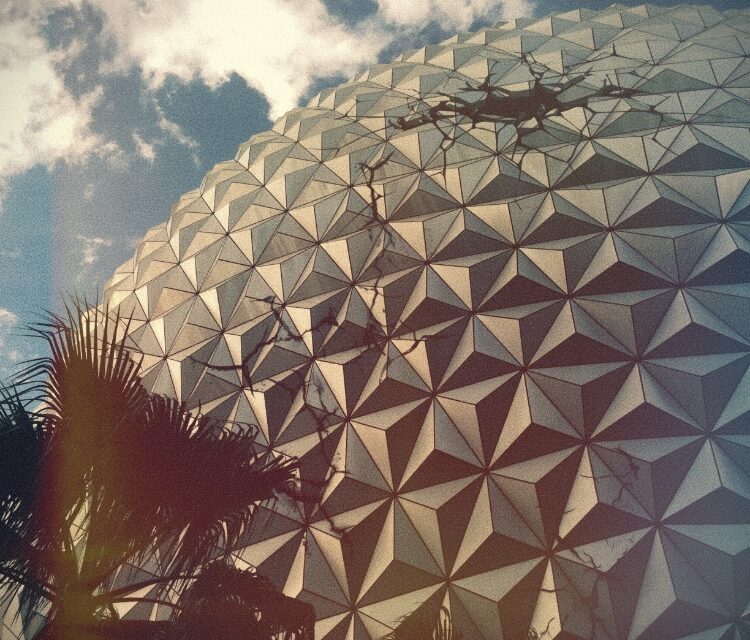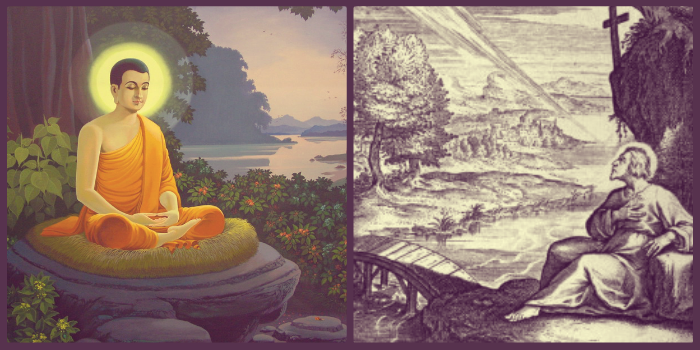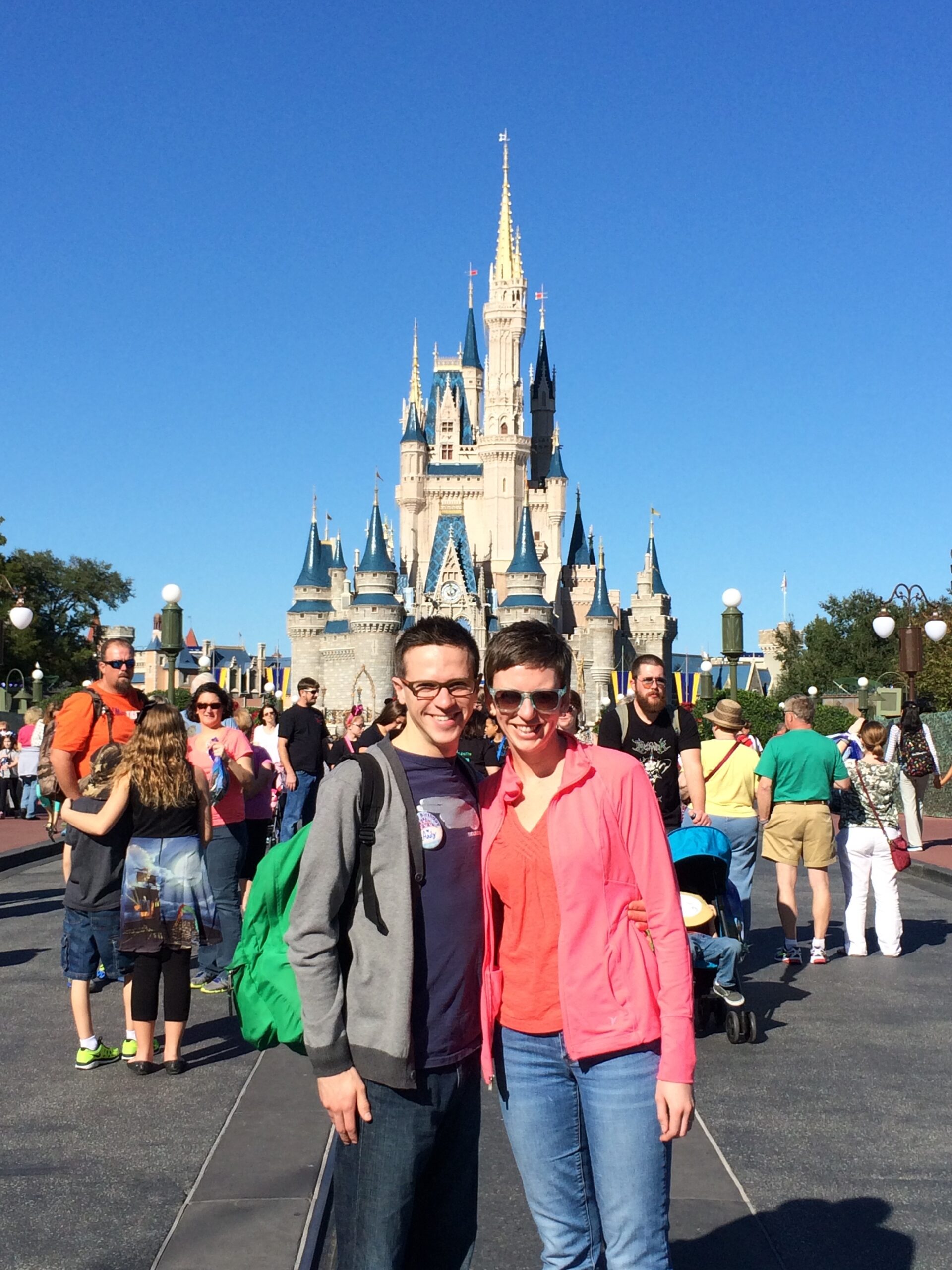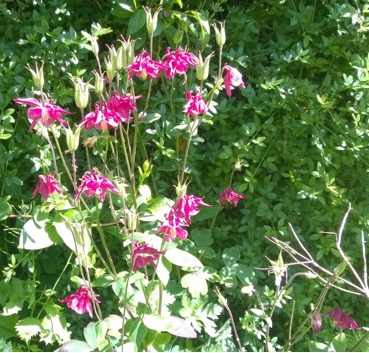 We tend to look at the temporary rather than the long-term, or even the lasting. Even in our political choices, we’ll vote in a certain way that appears to offer short-term gain rather than lasting change. We concern ourselves with the longevity of buildings and monuments more than the hearts and souls of the human beings whose dignity is being crushed. We think bandaids will cure the cancer of climate change or economic injustice or racial injustice. We’re blinded to the systemic roots of many of our problems: riches, honour, and pride. These are the three tactics of the evil spirit, according to Ignatius. Another word for it is ego. The problem with this egoic approach to our world is that we open our eyes too late. We mistake human “wisdom” for God’s Wisdom. “The foolishness of God is wiser than human wisdom, and the weakness of God is stronger than human strength” (1 Cor. 1:25).
We tend to look at the temporary rather than the long-term, or even the lasting. Even in our political choices, we’ll vote in a certain way that appears to offer short-term gain rather than lasting change. We concern ourselves with the longevity of buildings and monuments more than the hearts and souls of the human beings whose dignity is being crushed. We think bandaids will cure the cancer of climate change or economic injustice or racial injustice. We’re blinded to the systemic roots of many of our problems: riches, honour, and pride. These are the three tactics of the evil spirit, according to Ignatius. Another word for it is ego. The problem with this egoic approach to our world is that we open our eyes too late. We mistake human “wisdom” for God’s Wisdom. “The foolishness of God is wiser than human wisdom, and the weakness of God is stronger than human strength” (1 Cor. 1:25).
Creating division
The ego is the false self, or the “small self”, as Richard Rohr calls it. When we step back and see the larger picture of the world, we can sadly see how much the ego drives much of creation’s suffering: poverty, hunger, environmental damage, hatred, and war. Rohr recently quoted Rabbi Rami Shapiro who said, “This identification with the smaller self gives rise to needless anxiety, unnecessary suffering, and cross-cultural competition and violence.” Cross-cultural competition and violence. And we’re not just talking between countries. See the varied cultures within our own country. Diverse cultures are not bad! God loves diversity. But these cultures become tribal, exclusionary, and about who’s in and who’s out. I experienced the felt sense of this when I drove from Atlanta to rural Georgia for a few days’ retreat. At a gas station or the grocery store practically no one was wearing a face mask. I noticed rising within me, judgement. At the same time, I felt like I was being judged for wearing one. I noticed we were in our own tribes, made visible by an external sign. They knew I wasn’t from “around here” and I knew that I was out of my bubble!
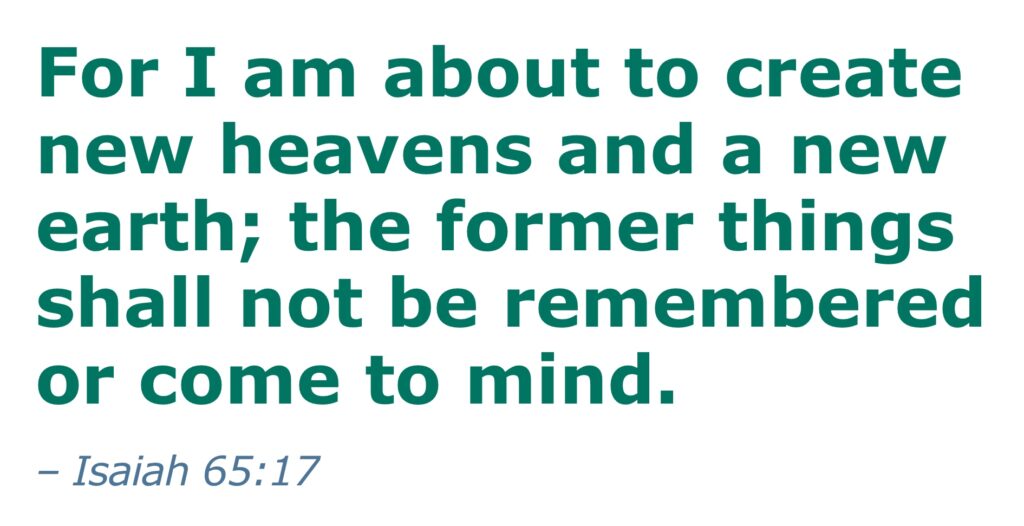 Tribal groups develop their own ego, which is more about its own self-preservation than about being in union with others. There arises an invisible barrier to relationship. I say that the ego and the evil spirit are synonymous because, like the evil spirit, the ego is always a trap. And like the ego, the evil spirit is all about self-preservation: it moves us from a trajectory toward God and neighbour to a path that curves back onto ourselves.
Tribal groups develop their own ego, which is more about its own self-preservation than about being in union with others. There arises an invisible barrier to relationship. I say that the ego and the evil spirit are synonymous because, like the evil spirit, the ego is always a trap. And like the ego, the evil spirit is all about self-preservation: it moves us from a trajectory toward God and neighbour to a path that curves back onto ourselves.
While stepping back may reveal the narrow view of the collective ego at work in the world, the larger view also reveals the inherent goodness of humanity. A mother whose child was killed in the Sandy Hook school shooting said, “There are only two kinds of people in the world, good people and good people in pain.” We must have hope in the human heart and how God is always seeking to transform hearts of stone into hearts of flesh. “You are good,” God said to the first humans. But the ego is the pain that we so easily feed. How do we not feed it? We let go. We let go of the illusions of security, like our tribal loyalties, our status, and our riches. As Psalm 49 says,
Do not be afraid when some become rich,
when the wealth of their houses increases.
For when they die they will carry nothing away;
their wealth will not go down after them. (vv. 16-17)
We must live into the tactics of the good spirit, the tactics of Jesus: poverty, lowliness, and humility. That’s hard enough for a single person to do, let alone an entire culture or country!
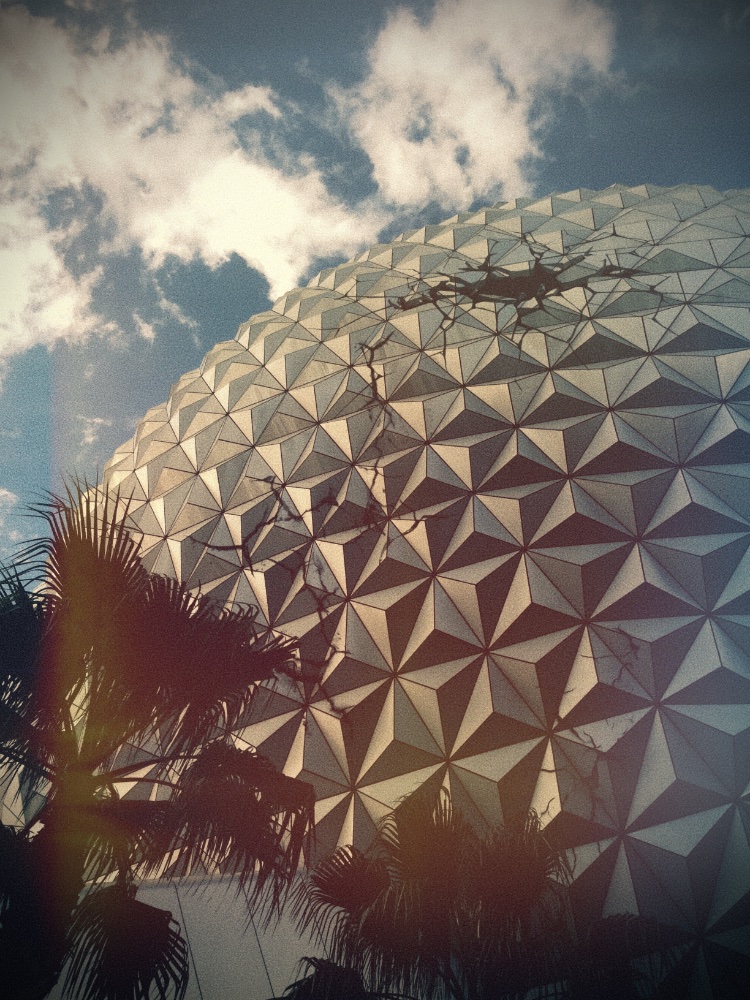 Hope in what lasts
Hope in what lasts
I once imagined in prayer one of my most favourite places, Epcot at Walt Disney World in Florida. For me, Epcot represents the hope of humanity where technology and innovation come together with diverse cultures and peoples. I remember my visit there in 2000, at the turn of the the millennium, where there was an emphasis on this hopeful future of global solidarity. In my prayer I saw the park, at some point in the future, abandoned. It was overgrown with weeds and crumbling buildings lay deserted. My heart sunk with sadness of the loss of a place that represented such hope for me. But behind the outline of the pavilions, the sun began to rise, and I felt hope. All things, even Epcot, are passing. One day it will no longer be there, but God still would be. This prayer memory arose again for me as the pandemic creates uncertainty for Disney parks. What if Epcot really did shut down, I wondered?
What if the visible church disappeared one day? Are we free enough to let go of that, trusting God’s eternal presence? Even the most beautiful things in our lives can become riches we cling to. Our ego identifies too much with them and they no longer are gifts held lightly; we come to possess these things and we become all about preserving them.
I began this piece stating that we tend to look at the temporary rather than the lasting, but I didn’t mean that we do all we can to make things—like the institutional church, Epcot, or my own tribe—permanent. Those things are always temporary. What the spiritual life ought to lead us to is to put our stock in the lasting presence and promise of God, not in our fleeting human wisdom, our possessions, our exclusive groups, or our ego. Those things will only fall apart.
What is the lasting promise of God about? The kingdom of God, as scripture calls it, is about union among one another and all of creation. When we keep a narrow egocentric view on the minute and temporary, we lose sight of the ways we cause damage to our human and terrestrial relationships, which are very much a part of the much wider kingdom of God. Matthew Fox says that we must move “from an egological to an ecological consciousness”. An unhealthy focus on self-preservation diminishes my care for and interdependence with my sisters and brothers, and even the earth itself—which is necessary to have these human relationships! The ego cares just about the self and the fleeting. The good spirit, indeed Jesus himself, draws us to something bigger, what he calls metanoia, or lasting transformation and redemption. And it’s not individual redemption, as we’re often taught; that’s just another manifestation of the ego. It’s redemption for all creation.
What are the fleeting things you’re clinging to? How do these create a barrier to loving union with others?
Related posts:
- Jesus’ Paradoxical Life-Giving Tactics
- Doing the Necessary Inner Work
- How the Pandemic Will Change Church
Listen to the podcast version of this post…

